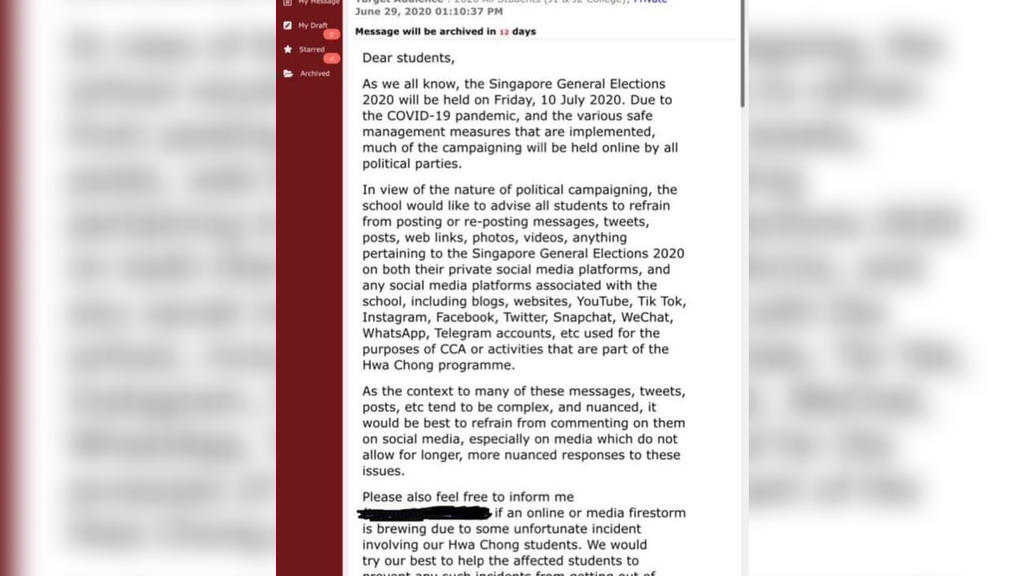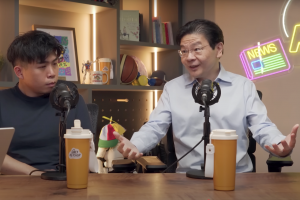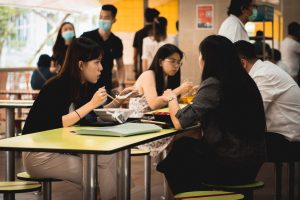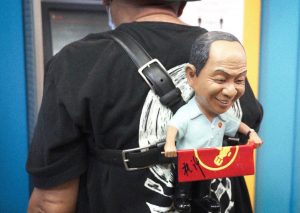We are writing to express our disappointment at Hwa Chong Institution’s (HCI) message discouraging its students from posting or re-posting anything pertaining to the Singapore General Elections 2020.
As former students, this runs counter to the values that we were taught and the experiences that we shared. At Chinese High, weekly assemblies were used as forums to discuss current affairs as well as issues around school management. These forums saw lively debates, one of which involved a long campaign to change the school uniform (the students voted to keep the uniform unchanged at that time). Our recent observations tell us that this remains a thriving tradition.
In addition, HCI proudly declares itself a leader in the field of humanities education. The Humanities Scholarship Scheme is held up as an example of dynamic education in the disciplines of Literature, History, and Geography, which seeks to enrich students’ learning beyond the classroom.
We therefore find it contradictory to HCI’s principles and traditions that it would advise its students to shy away from engaging with the political discussion on social media.
In a statement, HCI clarified that the school’s position was that social media was not a “suitable platform for students to be discussing their views on national issues, especially during an election period”. We understand the school’s desire to protect its students, and to help them avoid the pitfalls associated with the changing landscape of public discourse. However, we do not agree that simply stopping students from engaging with such issues on social media platforms is the solution. It is a fact of modern society that much of public political debate takes place through social media – this is even more true now in the context of a global pandemic and the need to protect public health by limiting physical interactions.
Social media is a platform for the exchange of views on issues, national or otherwise. Its suitability depends on the users that engage with it – by discouraging students from posting or re-posting anything pertaining to the elections on social media, HCI is missing an opportunity to equip its students with the necessary tools to shape the platforms upon which such discussions take place. Instead of telling our students that using social media for political discussions is wrong and unsafe, we should be teaching them how to verify the authenticity of claims that others have posted, debate in a manner that is civil and effective, and navigate the toxicity of certain segments of the internet.
HCI has reiterated that it encourages students to “engage actively in discussions and event debates, in a safe environment”, and that it sees it “as part of [its] responsibility to educate students on national issues so that they grow to become informed citizens.” These are principles of education that we wholeheartedly agree with, but the pursuit of a safe environment must not take precedence over the education that we seek to provide.
One cannot become an informed citizen in a bubble-wrapped vacuum, so we believe that the advice HCI has provided its students will have the unintended consequence of inhibiting the education of said students. We reiterate that this is an opportunity for HCI to engage with its students about the state of political discourse in Singapore, promote independent and critical thought, and contribute to developing the next generation of citizens that will shape society.
Finally, HCI’s recent statement ended by saying that “the advice [it] has given [its] students serves to remind them of the importance of exercising care and sensitivity on all social media platforms”. We are glad that the school has shifted its position from telling students to “refrain” from posting or re-posting messages to reminding them of “the importance of exercising care and sensitivity”. This is a step in the right direction, but we believe that more can be done to create an environment for lively participation and engagement on social and political issues.
At this time, we return to HCI’s stated mission:
积极乐学,善思敏行
We urge the school to reconsider its initial advice to the students, and expand its imagination on how to better equip them to become the informed citizens that we hope to develop.






